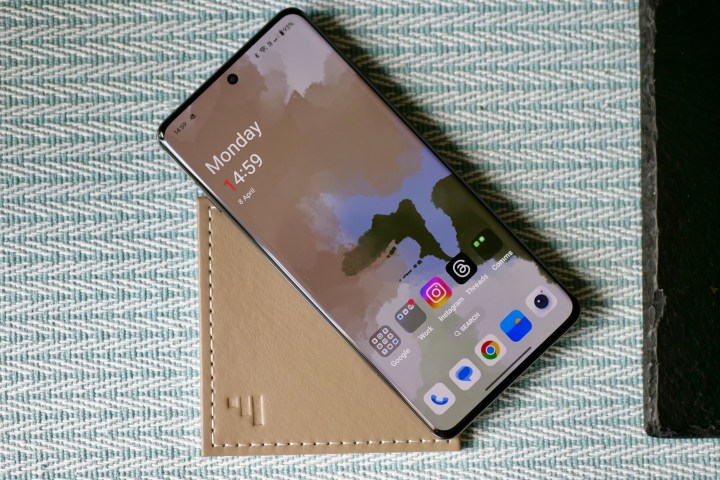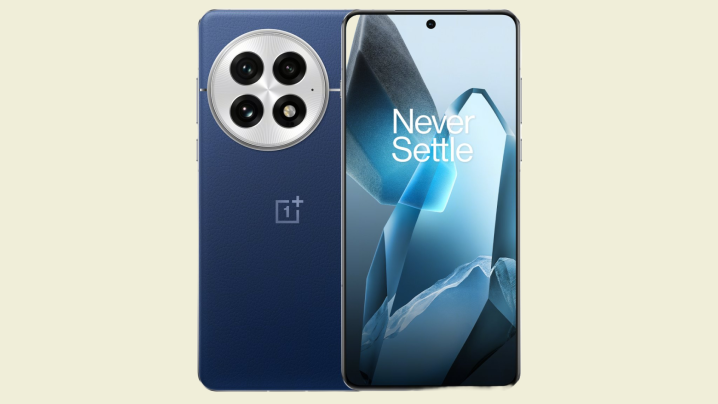One of the most anticipated new smartphones has been announced: the OnePlus 13. This device will eventually replace the highly regarded OnePlus 12, one of the year’s top phones. How do these two models compare? If you own a OnePlus 12, should you consider upgrading to the newer version? Let’s take a closer look.
| OnePlus 13 | OnePlus 12 | |
| Size | 162.9 x 76.5 x 8.5 mm | 164.3 x 75.8 x 9.2 mm (6.47 x 2.98 x 0.36 inches) |
| Weight | 210 grams | 220 grams (7.76 ounces) |
| Screen size and resolution | 6.8-inch 1440p OLED with 1-120Hz adaptive refresh rate
3168 x 1440 pixels at 510 pixels per inch 800 nits typical, 4,500 nits peak |
6.82-inch LTPO AMOLED (Dynamic 1-120Hz)
3168 x 1440 resolution at 510 pixels per inch 600 nits typical, 4,500 nits peak |
| Operating system | Android with OxygenOS | Android with OxygenOS |
| Storage | 256GB, 512GB, and 1TB | 256GB, 512GB |
| Processor | Qualcomm Snapdragon 8 Elite | Qualcomm Snapdragon 8 Gen 3 |
| RAM | 12GB, 16GB, or 24GB | 12GB or 16GB |
| Cameras | 50-megapixel main
50MP ultrawide 50MP 2X zoom Front: 32MP |
Rear: 50MP primary, 48MP ultrawide, and 64MP periscope telephoto lens with 3x optical zoom
Front: 32MP |
| Water resistance | IP69 | IP65 |
| Battery | 6,000mAh
Fast charging 100W (TBA in the U.S.) Fast wireless charging (50W) Reverse wireless charging (10W) |
5,400mAh
Fast charging 100W (80W in the U.S.) Fast wireless charging (50W) Reverse wireless charging (10W) |
| Colors | White Dawn, Blue Moments, Obsidian Black | Flowy Emerald, Silky Black |
| Price | TBA worldwide | From $800 |
| Review | To be released | OnePlus 12 |
OnePlus 13 vs. OnePlus 12: design and display

OnePlus is recognized for its innovative phone designs, evident in the OnePlus 13. While the new phone maintains the distinctive OnePlus identity, it introduces several noteworthy differences compared to the previous model. One significant change is the phone’s flat sides, reminiscent of the Apple iPhone, Samsung Galaxy phones, and Google Pixel. This design contrasts with the OnePlus 12, which features curved sides, potentially offering improved grip. Additionally, the OnePlus 13 boasts a slightly slimmer and lighter body, and its IP69 rating indicates enhanced resistance to water and dust.

The differences in display between the OnePlus 13 and OnePlus 12 are subtle but noteworthy. Both phones feature a 6.8-inch AMOLED display with a sharp 1440p resolution and a 120Hz refresh rate, delivering vibrant colors and deep blacks.
One key improvement in the OnePlus 13 is its typical brightness, which reaches 800 nits, compared to 600 nits on the OnePlus 12. Additionally, the OnePlus 13 utilizes the newer BOE X2 OLED panel technology, promising enhanced visual quality. However, both models maintain the same peak brightness of 4,500 nits.
Regarding protection, the OnePlus 13 and OnePlus 12 are equipped with Gorilla Glass Victus 2. The OnePlus 13 also features an additional “crystal shield super-ceramic glass layer.”
OnePlus 13 vs. OnePlus 12: performance

It will be a while before we can try the OnePlus 13, but the specifications indicate that it will offer a significant performance boost over its predecessor.
The OnePlus 13 features a Qualcomm Snapdragon 8 Elite chipset, compared to the Snapdragon 8 Gen 3 in the OnePlus 12. This updated chipset has an Adreno GPU, which promises smoother gaming and faster graphics.
Early benchmarks from AnTuTu show that the OnePlus 13 delivers 58% better overall performance, while GeekBench 6 indicates a 36% improvement in single-core performance. This improvement should result in noticeable enhancements for everyday tasks and general usage.
The question remains: how much better performance can we expect on the new phone? The OnePlus 12 already demonstrated impressive capabilities during daily tasks such as checking email, browsing social media, and watching videos. With its dual cryo-velocity cooling system, it also excelled in handling graphically intensive gaming sessions without any issues. We can likely anticipate similar performance from the OnePlus 13, with even greater enhancements expected for the models equipped with 24GB of RAM.
OnePlus 13 vs. OnePlus 12: battery and charging

Another noticeable change made on the OnePlus 13 is its larger battery. Where the OnePlus 12 includes a 5,400mAh battery, the one on the OnePlus 13 is 6,000mAh. The larger battery capacity is thanks to silicon-carbon battery technology that allows for more energy storage in a smaller space. This should mean longer battery life, although that depends on what you’re doing.
Depending on your display settings and usage, the OnePlus 12 can probably last up to two full days on a single charge. When more intensive tasks are added to the mix, that drops to around a day of use between charges.
The OnePlus 13’s larger battery capacity should allow it to outperform its successor, offering improved performance in demanding tasks, potentially better longevity since the battery will undergo fewer charging cycles, and more. Again, it’s a little bit too early to determine just how much the improvements will be.
One area where you won’t see a difference between the two phones is when it comes to actual charging. OnePlus did not enhance the charging speeds for wired or wireless charging. Like its predecessor, the OnePlus 13 supports 100W fast charging, 50W wireless charging, and reverse charging up to 10W. The OnePlus 12 was restricted to 80W charging speeds in the U.S. though, and it remains to be seen whether the OnePlus 13 echoes this limitation.
OnePlus 13 vs. OnePlus 12: cameras

Historically, the camera systems on OnePlus phones have been sound but often ranked below those of industry leaders like Samsung and Google. This trend began to shift in recent years, particularly following the company’s strategic partnership with Hasselblad, which kicked off with the OnePlus 9 series. This collaboration aimed to elevate OnePlus’ photographic capabilities by leveraging Hasselblad’s expertise in color science and imaging technology. As a result, each subsequent release has demonstrated consistent improvements in camera performance and overall imaging quality.
The OnePlus 13 features an impressive triple-camera setup, each boasting a high-resolution 50-megapixel sensor. At its core is a state-of-the-art 50MP primary sensor from Sony, known for its exceptional light-gathering abilities and sharp image reproduction. Complementing this is a 50MP ultrawide sensor, which offers a remarkable 120-degree field of view, allowing users to capture expansive landscapes and group photos without compromising on detail. Finally, the setup includes a 50MP telephoto lens that provides 3x optical zoom, enabling users to get closer to their subjects without losing image fidelity.
These enhancements not only contribute to a broader field of view but are also geared toward improving image quality in various lighting conditions, especially low-light scenarios, thanks to advanced sensor technologies and algorithms that enhance dynamic range and reduce noise.
Actual testing will be crucial in determining just how much better the camera experience is on the OnePlus 13 compared to its predecessor, which already had an impressive camera setup.
OnePlus 13 vs. OnePlus 12: software and updates

The OnePlus 13 and OnePlus 12 both operate on OxygenOS, OnePlus’ custom Android interface. However, their software and update policies differ significantly.
The OnePlus 13 comes with OxygenOS 15, based on Android 15, meaning you will have access to the latest Android features and security updates right from the start. In contrast, the OnePlus 12 requires an upgrade to obtain the same features.
A major distinction lies in software support. OnePlus guarantees four major Android updates and five years of security updates for the OnePlus 13. In comparison, the OnePlus 12 is supported with three major Android updates and four years of security updates.
OnePlus 13 vs. OnePlus 12: price and availability

The OnePlus 13 will launch first in China, with a worldwide release likely to begin at the beginning of the year. The phone is expected to start at $799 in the U.S., which is similar to the OnePlus 12’s launch price. However, this hasn’t been confirmed. The phone comes in White-Dawn, Blue Moments, and Obsidian Black.
This year’s phone has 256GB, 512GB, or 1TB of storage and 12GB, 16GB, or 24GB of RAM, respectively. The OnePlus 12 has 256GB or 512GB of storage and 12GB or 16GB of RAM. It is available in Silky Black and the now iconic Flowy Emerald.
OnePlus 13 vs. OnePlus 12: Is it worth the upgrade?

The OnePlus 12 is an outstanding smartphone that current owners can enjoy for many years due to its powerful performance and robust features. With its sleek design, high-resolution display, and impressive camera capabilities, the OnePlus 12 meets the needs of a wide range of users, from casual consumers to tech enthusiasts.
Whether to upgrade to the OnePlus 13 depends largely on your preferences and priorities. If you value having the latest chipset — such as a more advanced Snapdragon processor — along with ever-improving battery life and cutting-edge camera systems, then the OnePlus 13 is a compelling upgrade. The new model promises enhancements in processing power and efficiency and offers features like upgraded night mode photography and advanced computational photography, which could significantly enhance your photography experience. Additionally, it features a fresh design that brings a modern aesthetic to the table.
However, if you typically do not upgrade your phone yearly, waiting this time might be perfectly reasonable. While you may not have the best-performing OnePlus available on the market, and the camera system will not be as advanced as the new model, the differences between the OnePlus 12 and 13 are mostly incremental. The OnePlus 12 still excels in everyday tasks, gaming, and multitasking, and its functionality remains top-notch. Therefore, while the upgrades are excellent and can enhance user experience, they are optional for everyone. If your OnePlus 12 meets your needs and performs well, holding off on an upgrade might be your best option.
